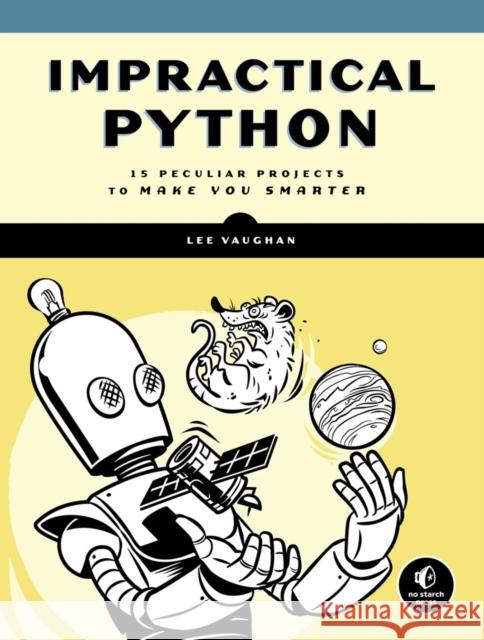Impractical Python Projects: Playful Programming Activities to Make You Smarter » książka
topmenu
Impractical Python Projects: Playful Programming Activities to Make You Smarter
ISBN-13: 9781593278908 / Angielski / Miękka / 2018 / 424 str.
Kategorie:
Kategorie BISAC:
Wydawca:
No Starch Press,US
Język:
Angielski
ISBN-13:
9781593278908
Rok wydania:
2018
Ilość stron:
424
Waga:
0.79 kg
Wymiary:
23.11 x 17.78 x 2.79
Oprawa:
Miękka
Wolumenów:
01
Dodatkowe informacje:
Bibliografia
Wydanie ilustrowane
Wydanie ilustrowane











